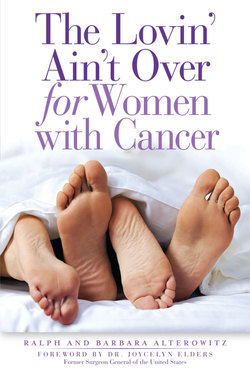Читать книгу The Lovin' Ain't Over for Women with Cancer - Ralph Alterowitz - Страница 27
На сайте Литреса книга снята с продажи.
Identity Disorder
ОглавлениеWithout my breasts, what am I? I see myself in the mirror every day. I’m only part of who I was. Nobody will want me.
Naomi
Amy is pretty, a size 8, and full of energy. A routine mammogram led her doctor to call her in. He told her, “It doesn’t look good.” The analysis showed a possible cancer in one breast. The biopsy proved it.
Then she had to make a decision. Consultation with her new doctor led to her decision to have a mastectomy. She had surgery for breast cancer in her left breast. Then she decided to have a second, prophylactic mastectomy.
After surgery, Amy began to regret her decision. Her husband loved her breasts. What would he say now? He had always been supportive of everything she did. Also, this was her second marriage. The first one was abusive. She was lucky to have met Frank. And he was younger than she was. What if he went elsewhere because she had no breasts? “Am I still a woman?” she wondered. “Women are supposed to have breasts. Is a woman still desirable without breasts? I’m not having any more children. But in our society, a woman’s desirability is biased by how men view her breasts. I have none.”
Suddenly, attractive Amy no longer existed in her own mind. She had lost her identity. At the very least, it was severely disabled. “I’m a woman with no breasts,” she said. “I’m still a woman, perhaps, but certainly not a normal woman. How will people look at me? What will Frank think? What will Frank do?”
No matter what their size and shape, a woman’s breasts are connected to both her body image and her total identity as a woman. Her identity encompasses everything she presents to society. A change in her female anatomy often causes a change in a woman’s self-perception. Although it is not a universal or inevitable reaction, a woman’s identity is often shattered with the loss of a breast or female organ.
Some women with cancer begin to define themselves through the disease or the consequences of treatment. These women create a barrier between themselves and others. They may see themselves several times a day and say, “So this is me. I don’t think of myself as a woman. I am not the total person I was when I entered into this relationship.”
Women with gynecological cancers can have as much identity difficulty as those with breast cancer, even though their exterior figures may remain intact. For them, the scars of one or more surgeries are evidence that the body is no longer the same. The resulting change in hormonal activity keeps reminding women of the changes to their bodies. Women who were planning to have children are deeply affected by infertility.
With this sense of a change and “defective” identity, the woman distances herself from her partner and from the mutual enjoyment possible during sexual activity. She defines herself as different and unlovable due to the effects of therapy. A woman who feels unattractive or ugly for an extended period of time following cancer treatment will withdraw from situations where she must interrelate with other people. They, in turn, perceive her as unfriendly or as preferring to be alone, and no longer try to interact with her, leading to further social isolation.
